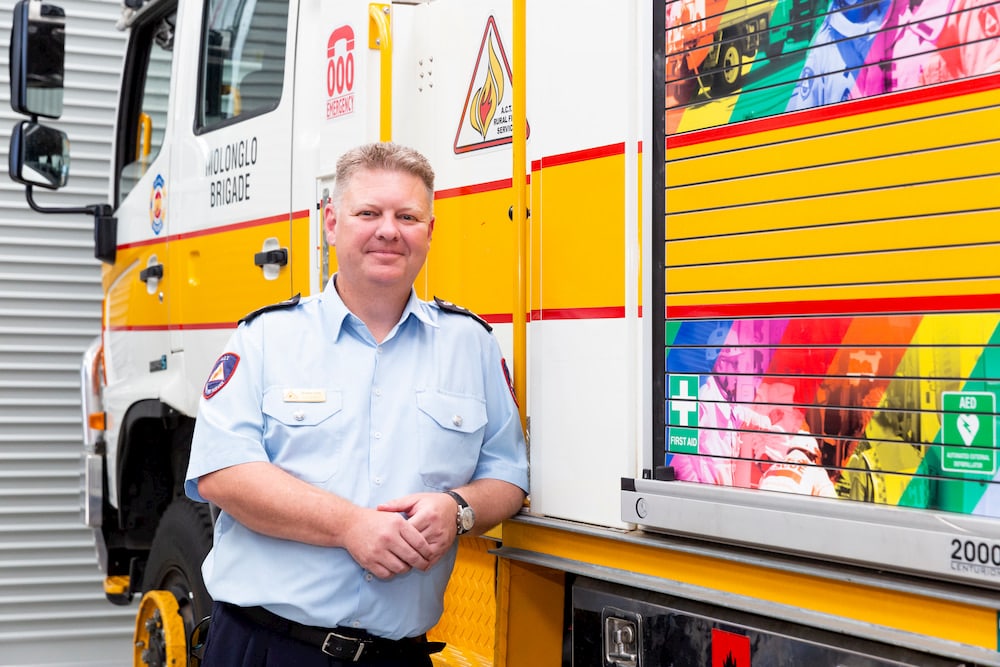Rohan Scott, the new chief officer of the ACT Rural Fire Service (ACTRFS), was introduced to the public today at the Molonglo Brigade facility – where he first served with the Service more than 20 years ago.
“The ACTRFS is an organisation that has been part of my life for a very long time,” Mr Scott said. “I’m looking forward to supporting our members and continuing to build a service ready for the environmental challenges ahead.”
Mr Scott has served as acting ACTRFS chief for the last eight months, succeeding Joe Murphy, who retired in April.
As a RFS volunteer, Mr Scott was on the front line during both the Christmas 2001 and the 2003 fires. He also has five years in-depth experience as a head of operations for the RFS and was incident controller for the Beard and Orroral Valley fires last summer.
Mick Gentleman, Minister for Police and Emergency Services, said he was pleased Mr Scott would continue substantively in the role over the next five years, after diligently leading the ACTRFS over the last year.
As ACTRFS chief officer, Mr Scott leads an organisation of 480 volunteers who dedicated their time to protect and engage the community, with another 300 to 400 on the waiting list (a large influx after last summer’s disaster).
It was those volunteers who kept him in the RFS for so long, Mr Scott said. “I’ve met people throughout my years in the service that I consider lifelong friends; I would never have crossed their paths if I hadn’t joined the RFS.”
Mr Scott said he learnt a lot about the members while on standby at the station, sitting around waiting for incidents, listening to the stories they told.
The last year had been “incredibly challenging, but also very positive”, he said. “We’ve learnt a lot; we’ve come out of it as a stronger service.”
Mr Scott said he would use the year ahead to prepare: both building a resilient community through education and engagement, and preparing the RFS for the fire season, including through weekly training during winter.
Over the next 12 months, Mr Scott said he would focus on more structured training, and on working with each brigade’s leadership team. Climate change had also affected fire behaviour, so the RFS had to adapt their tactics and adopt new technology. A new tanker, for instance, allowed firefighters to stay in the cabin and avoid smoke exposure, thanks to a joystick-controlled monitor.
In the immediate future, grass fires may be a concern. La Niña has brought welcome rain, but also significant grass growth. This week’s heatwave and dry winds could “cure” the grass.
Mr Scott urged the community to avoid dangerous activities: grinding, welding, open fires outside designated areas, and driving through long grass with a hot exhaust. He also asked the community to prepare: download a survival plan, and heed fire danger ratings.
Mr Scott’s acting position has already seen significant change in the RFS, ACT Emergency Services Agency Commissioner Georgina Whelan said.
“The relationships he’s established with our cross-border colleagues in NSW, with partners in Conservation, and most importantly the engagement we’ve seen occur with Rohan and the senior leadership team within our volunteers has been outstanding,” Ms Whelan said. “I briefed our senior leadership team last night as to Rohan’s appointment, and it was very welcome news for them indeed.”



